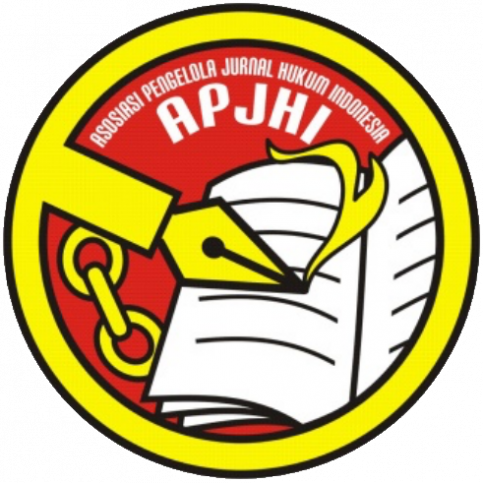CRIMINAL LIABILITY FOR PERPETRATORS THREATENING THE SPREAD OF IMMORAL VIDEOS ON SOCIAL MEDIA
Abstract
Full Text:
PDFReferences
Adami Chazawi dan Ardi Ferdian, 2015. Tindak Pidana Informasi & Elektronik (Penyerangan Terhadap Kepentingan Hukum Pemanfaatan Teknologi Informasi dan Transaksi Elektronik), Malang: Media Nusa Creative.
Donald A. Rumokoy dan Frans Maramis, 2016. Pengantar Ilmu Hukum, Jakarta: Rajawali Pers.
Hasbullah F. Sjawie, 2015. Pertanggungjawaban Pidana Korporasi Pada Tindak Pidana Korupsi, Jakarta: Prenada Media Group.
Jonaedi Efendi dan Johnny Ibrahim, 2021. Metode Penelitian Hukum Normatif dan Empiris, Jakarta: Kencana.
Koto, I., Lubis, T. H., & Sakinah, S. (2022). Provisions of Legal Protection for Terrorism Victim in Order to Realize Constitution Order. Volksgeist: Jurnal Ilmu Hukum dan Konstitusi, 243-252.
Mukti Fajar dan Yulianto Achmad, 2019. Dualisme Penelitian Hukum Normatif & Empiris, Yogyakarta: Pustaka Pelajar.
Nynda Fatmawati Octarina, 2018. Pidana Pemberitaan Media Sosial, Malang: Setara Press.
Rindiani Kurniawati A. Mulyadi. Rosalia Dika Agustanti. Analisis Yuridis Terhadap Pembuktian Tindak Pidana Penyebaran Konten Asusila. Jurnal: Humani (Hukum dan Masyarakat Madani). Vol 11. No. 1. Mei 2021.
Romli Atmasasmita, 2000. Perbandingan Hukum Pidana, Bandung: Manjar Maju.
Salim HS dan Erlies Septiana Nurbani, 2017. Penerapan Teori Hukum Pada Penelitian Tesis dan Disertasi, Jakarta: PT. Rajagrafindo Persada.
Soerjono Soekanto, 2005. Pokok-Pokok Sosiologi Hukum. Jakarta: Raja Grafindo Persada.
Undang-Undang Nomor 19 Tahun 2016 Perubahan Atas Undang-Undang Nomor 11 Tahun 2016 Tentang Informasi dan Transaksi Elektronik
Widyopramono, 2012. Kejahatan di Bidang Komputer, Jakarta: Pustaka Sinar Harapan.
Zainuddin Ali, 2019. Metode Penelitian Hukum, Jakarta: Sinar Grafika
DOI: http://dx.doi.org/10.31000/jhr.v11i2.8952
Article Metrics
Abstract - 774 PDF - 609Refbacks
- There are currently no refbacks.

This work is licensed under a Creative Commons Attribution-ShareAlike 4.0 International License.

